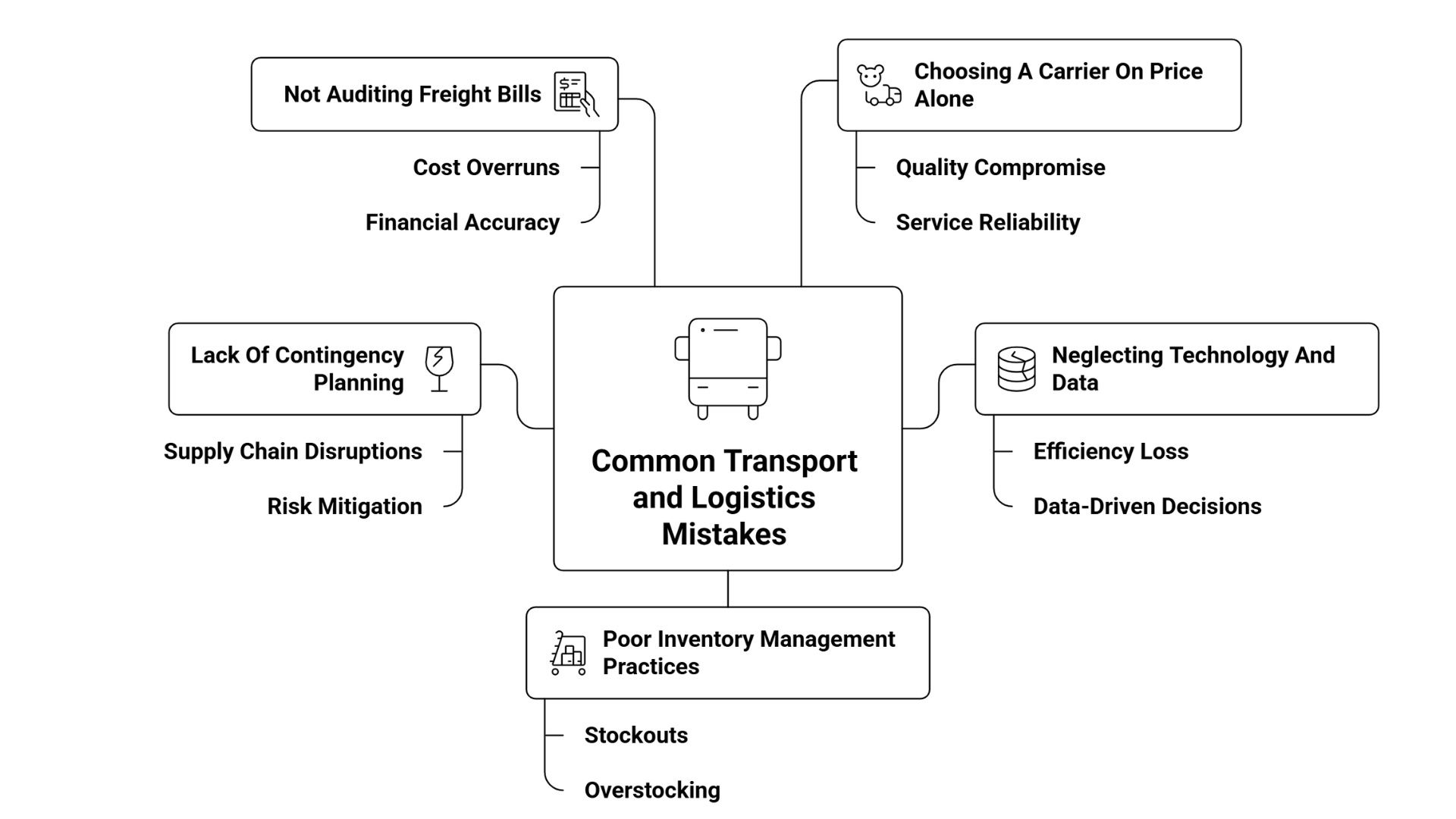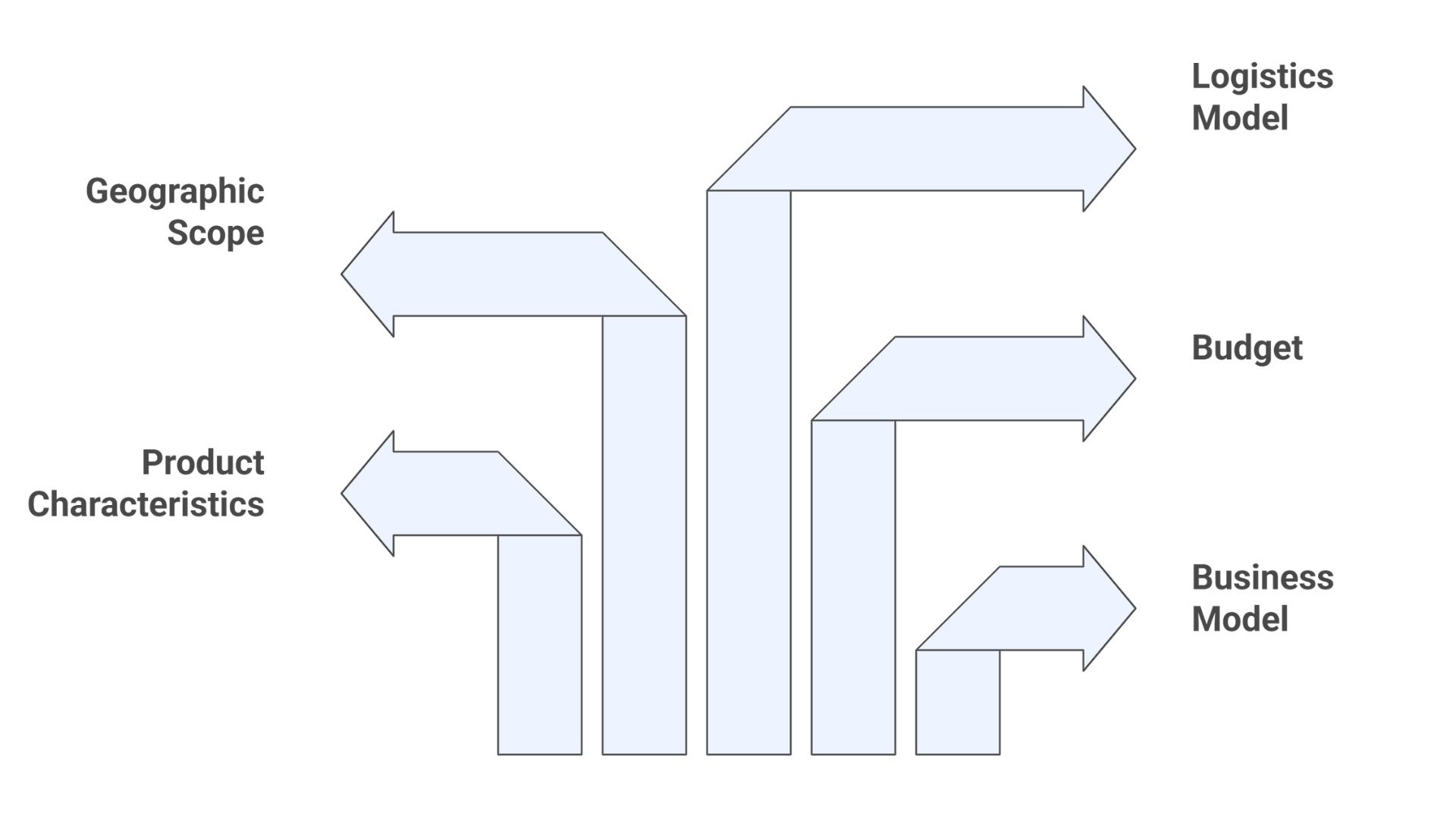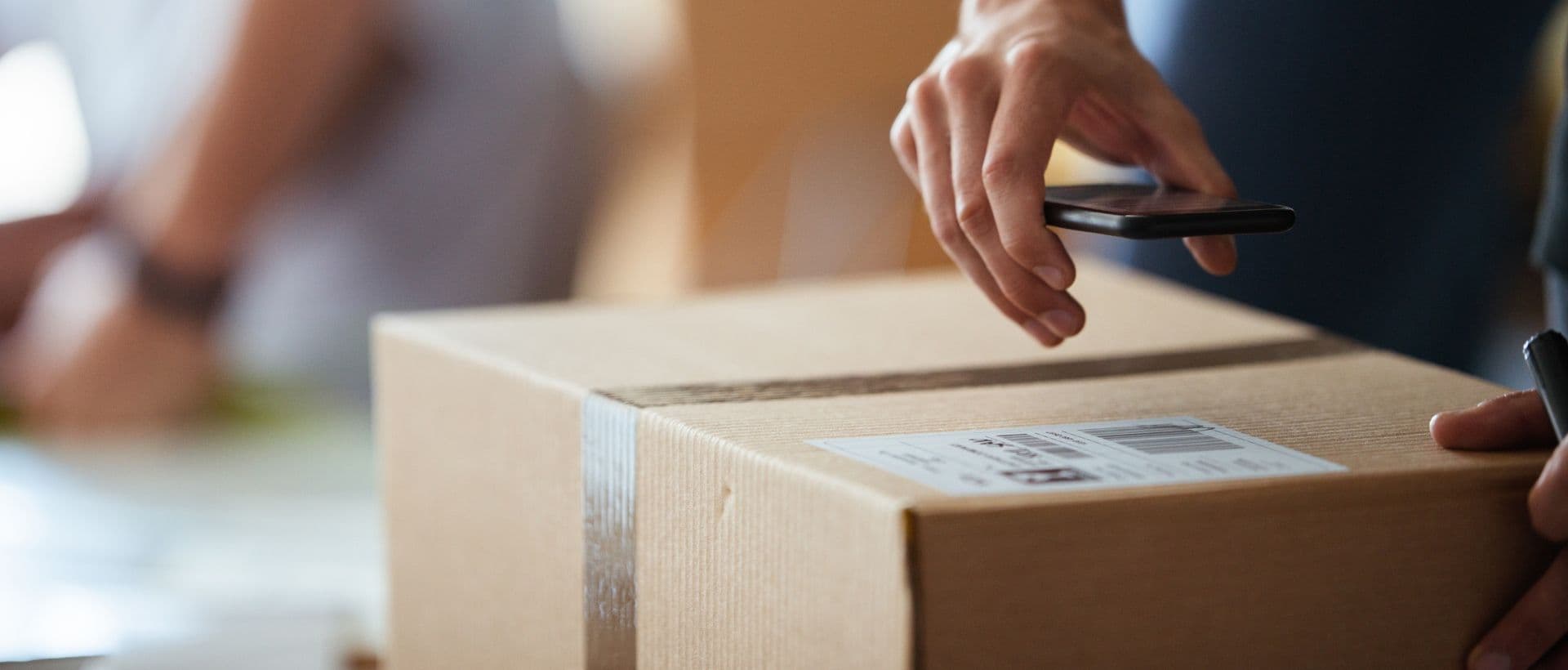
If you're running a business these days, you already know how tough it can be to move goods from one place to another. Rising shipping costs and delayed deliveries lead to poor customer satisfaction.
But here is a thing: if you optimize your transport and logistics, you can not only save 10-15% in shipping costs but also ensure on-time delivery.
That's totally a game-changer for any business. So, whether you're sending a few packages locally or thousands of shipments across India, transport and logistics support you and directly save your profits.
Let's dive into how transport and logistics work, how they are the same yet different, why they are important, and tips on choosing the best for your business.
What Is Transport And Logistics?
Both transport and logistics involve moving goods from one place to another. In short, it is a system to move products from factories to shops and finally to end users.
Transport: Only deals with the movement of goods using trucks, ships, planes, trains, etc.
Logistics: A broader perspective on planning, storing, transporting, and managing the entire flow from its starting point to its destination.
So, when you optimize both, you get a system that helps businesses deliver on time and at the right cost.
A Simple Flow of Transport and Logistics Service
So, a logistic service kicks off as soon as the order is received, followed by pick, pack, and transport, which eventually reaches the customers.
In short, transportation is a key component of logistics services. And together, both connect suppliers and businesses to its customers.
Difference Between Transport And Logistics
The basic difference is that transport is about moving goods from point A to point B. Logistics covers the entire plan and management behind that journey.
Here is a detailed table on the difference between transport and logistics:
Why is Transportation And Logistics Important For Businesses?
Let's be honest, transportation and logistics are the backbone of every business in India. And here are the reasons why they are important for any business:
1. Cost Control and Savings: Having a smart and well-optimized logistics partner in India can seriously shrink your expenses in transportation and shipments. They handle, plan routes, and combine shipments to save on fuel and handling costs.
2. Customer Satisfaction: A fast, reliable delivery keeps customers happy. If your brands deliver goods on time, people are more likely to trust you and come back again.
3. Global Market Access: You're not restricted by your location but by the logistics and transport services you choose. With a good logistics provider, you can reach even the remotest part of the country.
4. Complete Inventory Management: Logistic services can handle your complete inventory, i.e. from the product's arrival in the warehouse to its final delivery (and sometimes returns).
5. Supply Chain Connection: Transports links every step from raw material to factories and then finished goods to the end users. And in between all links, logistics is the whole that holds the whole process in one place.
6. Flexibility: With the right logistics provider, you don't have a headache to manage workloads as per your business needs. Even during high demand (like during festival season), logistics providers can easily handle loads with their strong transportation and warehousing networks.
Common Transport And Logistics Mistakes (With tips to Avoid)

Let's be real—businesses lose money every day because of basic transport and logistics mistakes. So, figure out what the common mistakes are that you can avoid and save your money and time:
1. Choosing A Carrier On Price Alone
Don't go with the provider that quotes the lowest. But why? Because every business has to make money, they must have to cut some corners to earn their margin, and for you, this could cause:
- Late deliveries
- Poor handling and prone to damage
- Low on-time delivery rates (+95% is the industry average)
- Limited tracking or old-school registers.
Pro tip: The best value is usually a mid-price option. We also suggest taking a trial LCL shipment from new logistics providers before making any long-term deal.
2. Neglecting Technology And Data
About half of the transportation companies are still using spreadsheets and endless phone calls to give updates to their partner businesses. This process is not only prone to errors but also a waste of time and human resources.
A modern transportation and logistics service should have:
- Real-time tracking
- Automated processes and barcode inventory status
- Data analytics report for optimizing future trends and delivery
- Mobile or online dashboard to check the current status.
3. Poor Inventory Management Practices
Manual counting and sorting, no safety stock planning, and a lack of warehouse management software (WMS) are some of the signs of poor logistics providers.
You should always cut yourself out from these types of providers and look for providers that offer:
- Sort products based on sales, such as fast-selling items
- Have an accurate counting system with unique barcodes on each item
- Should have a separate space for returned items
- Real-time data of current sales and inventory.
4. Lack Of Contingency Planning
Every logistics and transport company should have contingency plans to deal with disruption. These include:
- Heavy rains or floods
- Carrier shortages
- Equipment breakdowns
- Labour strikes
- Natural disasters.
There must be a buffer period along with some backup plans to deal with these scenarios.
5. Not Auditing Freight Bills
You must avoid some of the standard billing errors, as no one wants to pay extra.
- Duplicate charges for the same shipment
- Incorrect weight or dimension calculations
- Wrong service billing
- Add-on charges for services not used.
How To Choose The Right Transport And Logistics Partner

Choosing a transport and logistics partner mainly depends on your business model (B2B or B2C), what you sell, your budget, and how far you need to reach. Here are some key considerations to help you select the ideal transport and logistics partner for your business.
1. Your Business Model (B2B vs. B2C vs. D2C)
Here's how each model and its requirements for choosing a provider:
2. Product Characteristics
You must choose a provider based on your product types. Here are the four most common types:
A. Size and weight: Actual weight and volumetric weight determine the final pricing.
- Small, light stuff: Parcel carriers such as FedEx, EKart, and AAJ Swift work best.
- Large and heavy: SafeExpress, AAJ Swift, DHL.
B. High-value products: Need extra care, security, and insurance.
C. Perishable goods: Need refrigerated trucks and warehouses along with quick delivery.
D. Fragile items: Require special packaging and gentle handling.
3. Budget And Cost Considerations
Around 5-10% of the product's cost is eaten by transportation and logistics. So, choose a provider that offers transparent pricing in terms of:
- Fixed costs: warehouse rent, equipment, and staff.
- Variable costs: fuel, carrier fees, packaging, and handling.
Based on the above two metrics, the shipping cost can be calculated.
4. Geographic Scope
If most of your customers are domestic, you can use ground, rail, or air services without worrying about customs.
For international shipping, you not only have to clear customs but also face a longer transit time.
5. In-House (Private Fleet) vs. 3PL vs. 4PL: Making The Choice
Private fleets make sense if you have to ship regularly with steady, high volume, and fixed routes. Here, you control everything (warehousing, transportation, and delivery).
Third-party logistics (3PL) providers handle all logistics services independently. They are best for businesses that have:
- Ship regularly to different areas and routes (like an e-commerce store)
- Adjust shipping demands during peak seasons
- Growing businesses
- A warehouse with a good and modern inventory management system
Fourth-party logistics (4PL) providers take over your entire supply chain, even managing other logistics partners. They are mainly for businesses that need to ship globally.
Thus, a well-balanced and optimized transport and logistics is a game-changer for any business. So, based on your needs, make sure you choose the best transport and logistic providers for your business.
You can also get a free quote (with a dedicated account manager) for all of the logistics and transport services you need.


